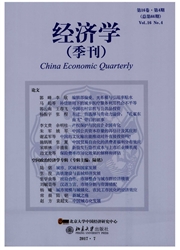

 中文摘要:
中文摘要:
过去十多年来,为了解释中国的经济转型与增长并更好地理解转型国家的增长差异,由Charles Tiebout发展起来的早期的分权理论被经济学家发扬光大了。新一代的财政分权或财政联邦主义的理论集结了经济学和政治学的元素,不再局限于公共财政的话题,而是将视野转向了地方官员在维护市场、促进竞争与推动经济增长中的激励和行为。本文以中国的中央一地方关系的体制演进,尤其是1978年之后的财政分权的重要经验为依托,回顾和讨论了这个第二代财政分权理论的发展脉络与经验研究的成果,从一个角度讲述了转型与增长的中国故事。
 英文摘要:
英文摘要:
One of the most fascinating advancements in public economics in the past decade is the emergence of second generation of fiscal decentralization. Not like the early generation following Charles Tiebout in 1956, the new development of fiscal federalism focuses not on public finance, but on the role of incentives and behavior of local officials in preserving the markets, enhancing regional competition and fostering economic growth. In the context of evolution of central-local relationship in China, and of fiscal decentralization during post-1978 era, this paper attempts to construct a Chinese story of economic transition and growth by tracing and outlining the theoretical and empirical elaboration of "fiscal decentralization, Chinese style".
 同期刊论文项目
同期刊论文项目
 同项目期刊论文
同项目期刊论文
 期刊信息
期刊信息
